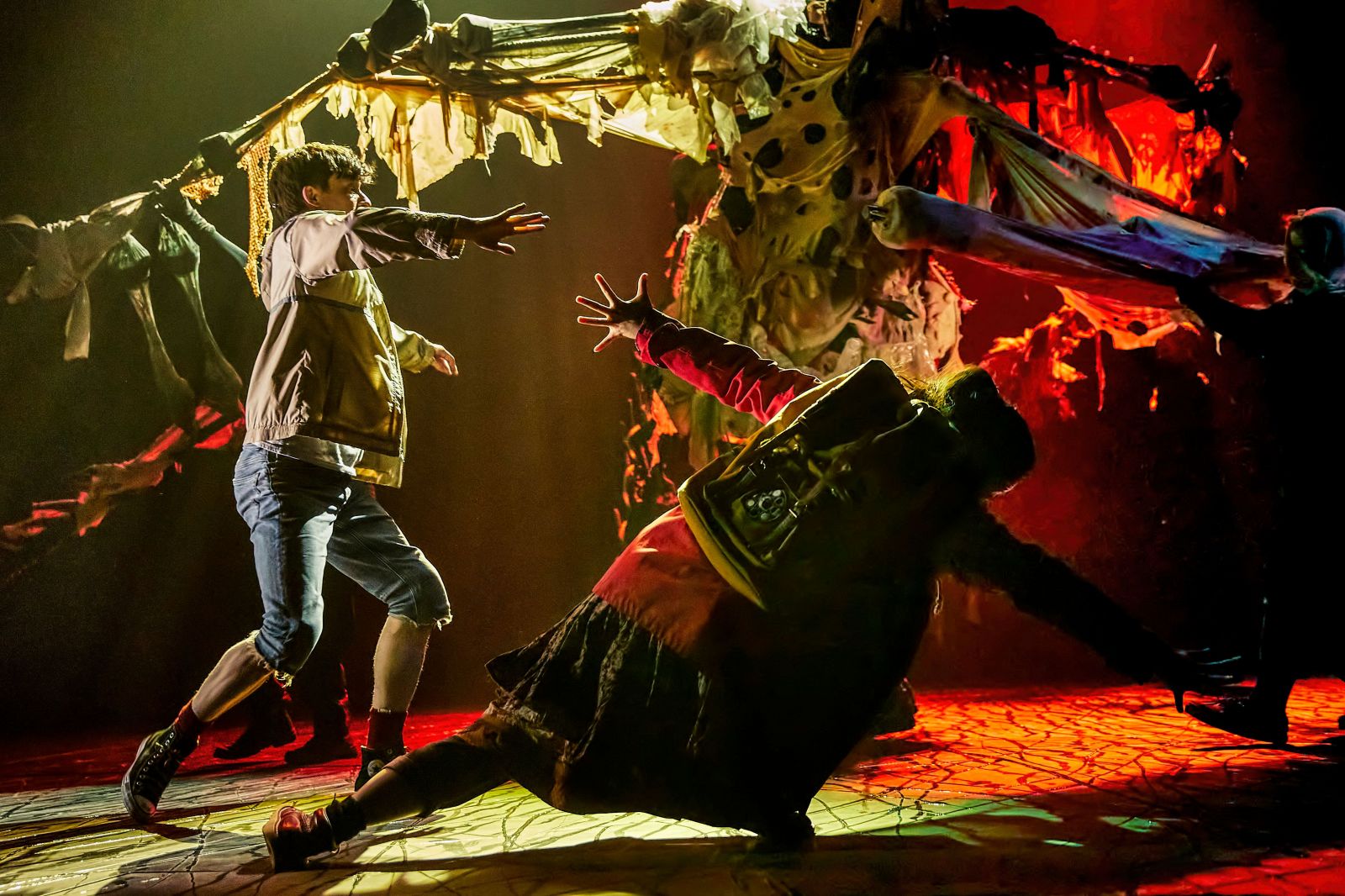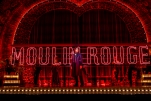The Ocean at the End of the Lane at The Bristol Hippodrome

Posted on: 2023-08-17
Our rating:
Just too good to put into words
When you tell others about your childhood and where you grew up, you don’t tend to include immortal made-up families and terrible extradimensional monsters in your telling. Unless you’re Neil Gaiman, in whose case, splicing fantasy elements with personal recollection is the closest you’ll get to an ‘autobiography’ in the classical sense of the word.
The Ocean at the End of the Lane is Joel Horwood’s adaptation of Gaiman’s novel of the same name, which he wrote for his wife, Amanda, to tell her where he lived and who he was as a boy. It’s a story that sensitively and beautifully explores the concept of memory, and, as Gaiman elaborates, ‘about what we forget and what we carry with us.’
.jpg)
The story begins with a man revisiting his childhood home. It’s not a happy event that takes him there, and he wanders absentmindedly to the side of the pond near the old farmhouse where he used to play with a long-forgotten friend. Suddenly, he’s back there – it’s his 12th birthday, and he’s squabbling with his younger sister in their shared bedroom whilst his hapless father burns the toast.
Home has never felt like home since his mother passed away, and the subsequent chaos is palpable from our view into the kitchen. As tragedy strikes in the form of a dead lodger, our main character is drawn down the lane to befriend a girl from the neighbouring farm, part of a dynasty of otherworldly, powerful women who have lived on that farm as long as history can remember.
.jpg)
As the story progresses, the familiar territory of 1980’s Sussex begins to slip into something uncanny and unearthly. Magic starts seeping through the seams into our world. The pond by the farmhouse isn’t simply a pond; it’s an ocean, and an unexpected tragedy forces an encounter with a terrible creature so actively frightening, I was left cowering in my seat.
The stage design is incredibly effective – doors on wheels that once just demarcated the sense of space in a room suddenly seem to have malicious intent, multiplying and spiralling in a nightmarish façade. Horror tropes are drip-fed through an effective use of set and clever tricks, and occasional jump-scares which add to the general sense of discomfort and stress as the main character squares up to Charlie Brooks’ Ursula, a calculated villain who is sure to remind Coraline (another of Gaiman’s novels) fans of the ‘Other Mother’.

Once Ursula moves into the spare room in the house, she immediately wins the hearts of Dad and Sis, bringing order (and unburnt toast) back to their lives. But our main character recognises her for who she really is – and pleads with his family to see how she is controlling their actions. And this is where the fine line between reality and fantasy twists and merges the most – is she really controlling them? Or is this just what the boy must believe so reality doesn’t feel so awful, and so out of his grasp?
With stunning visuals, thrilling sound design and a chilling use of puppetry, illusions and set, The Ocean at The End of the Lane is - simply put - just too good to put into words. It’s sensitive, thoughtful and a total gut-punch which blends the agony of childhood nightmares with the bleak reality of adulthood, and the fading and repressing of memories both of people we love, and things we would rather forget.

Read more:
Article by:

Naomi is the Marketing and Publicity Manager at b small publishing, a children's book publisher specialising in dynamic young fiction. In her spare time, she enjoys writing, life drawing and finding weird and wonderful events to go in and around Bristol.

